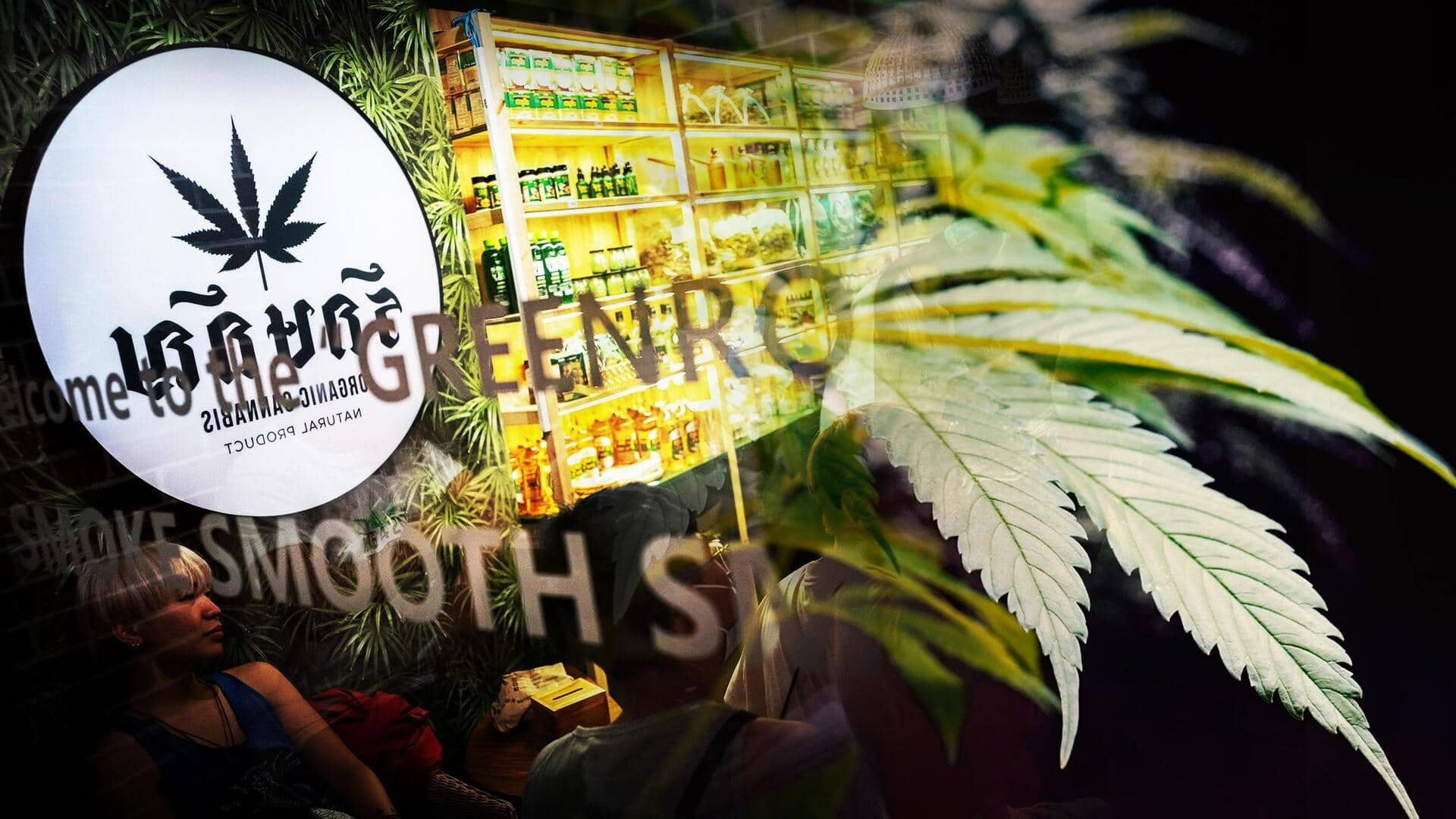
Thailand moves to ban recreational marijuana with draft bill
What's the story
Thailand's health ministry is gearing up to propose a draft bill that aims to ban recreational cannabis use, just over a year after the country became the first in Asia to decriminalize it. The proposed bill, which will only allow the consumption of marijuana for health and medicinal purposes, will be presented at a cabinet meeting next week. Prime Minister Srettha Thavisin has been a staunch opponent of recreational marijuana use since taking office in August last year.
Context
Why does this story matter?
Medical marijuana has been legal in Thailand since 2018, but its decriminalization in 2022 marked a significant step forward. This led to a surge in cannabis-related businesses like weed cafes and hemp spas, boosting tourism to the Southeast Asian country. However, the Move Forward Party, which won the 2023 general elections, opposes recreational marijuana use. Recently, the Thai government introduced a draft bill on January 16 to limit cannabis use to medical purposes.
'Public pressure'
Proposed penalties of over Rs. 2.3 lakhs
If approved, the new law would impose fines of up to 60,000 baht (approximately Rs. 1.5 lakhs) for recreational use. Whereas, advertising or marketing campaigns promoting such use could result in prison terms of up to one year or fines as high as 100,000 baht (Rs. 2.3 lakhs). The push for stricter regulations comes after public pressure, including complaints about marijuana smell at a Bangkok concert. To be sure, smoking marijuana in public remained illegal even under the relaxed laws.
Impact on businesses
Businesses seek regulation rather than ban
Many business owners who have benefited from cannabis decriminalization are in favor of greater regulation of its use, as opposed to a ban. However, the government seems determined to introduce legislation to curb recreational use. Meanwhile, a report by the University of the Thai Chamber of Commerce estimates that the sector could be worth $1.2 billion (approximately Rs. 99,000 crore) by 2025.